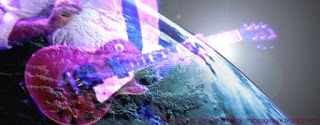 |
| 2004 08 April On This Day Jimmy Page visited the Cairo Museum |
- 1968 The Yardbirds - Miami Beach FL at Thee Image Club (day 1 of 3)
- 1969 Led Zeppelin - Welwyn England at Bluesville 69 Club
- 1970 Led Zeppelin - Raleigh NC at J.S. Dorton Arena
 |
| 1968 Jimmy Page / The Yardbirds, Miami Beach FL |
1969:
"If Led Zeppelin plays ten times stronger than the Yardbirds, the sound is similar. In that, it is primarily the group of Jimmy Page. Hopefully the Led Zeppelin will also be appreciated that the Yardbirds were in their time."
~Bruno Ducourant, Rock & Folk, No. 29, 5/69
 |
| 1969 Jimmy Page / Led Zeppelin, Welwyn England |
Unlike most rock concerts, the audience spent a great portion of the show saluting the solos in standing ovations.
~Steve A. Jones
 |
| 1970 Jimmy Page / Led Zeppelin, Raleigh NC |
 |
| 1977 Jimmy Page, Shirley Dixon, Robert Plant, Chicago |
The Stele of Revealing is a painted, wooden funerary tablet discovered in 1858 at the mortuary temple of Hatshepsut, fifth pharaoh of the eighteenth dynasty of Egypt. It was made for the priest Ankh-ef-en-Khonsu i, a Theban priest of the god Mentu, whose coffin was in the temple.
Not long after coming across the stele in a museum in Cairo in 1904, Aleister Crowley authored The Book of the Law (the Law of Thelema), the basis for which was the hieroglyphic text on the stele.
The number 666 on the reverse of the stele is the catalog number assigned to the object by the Egyptian Museum. 666 has numerological significance in the system of Thelema, a religion based on a philosophical law (the stele's current catalog number is A 9422).
Thelema is a Greek word meaning "will" or "intention". One of the earliest mentions of the spiritual philosophy of Thelema is found in the five-book serial novel, Gargantua and Pantagruel, written by Francois Rabelais in 1532, which recounts the adventures of a father and son who happen to be giants. In one book, a Friar John founds an "anti-church", the Abbey of Thélème, for the purpose of providing an education that countered the Christian standards and morals of the day. The rule of the Abbey was "Do what thou wilt", one of the basic tenets of Thelemic philosophy today.
 |
| The Stele of Revealing, Cairo Museum Egypt |
♪

♪ Kashmir (Led Zeppelin, Knebworth 1979) YouTube
♪ Mage Music 1 playlist at YouTube
♪ Mage Music 2 playlist at YouTube
♪ Page & Plant playlist at YouTube
NOTICE: April 11 will be the last daily On This Day post as that will be a full year's worth. I won't post any more unless Jimmy Page's website offers some new ones. Stay tuned for new posts here on the Mage Music blog about the music and Magick of JIMMY PAGE and previews of new Mage Music projects! |














